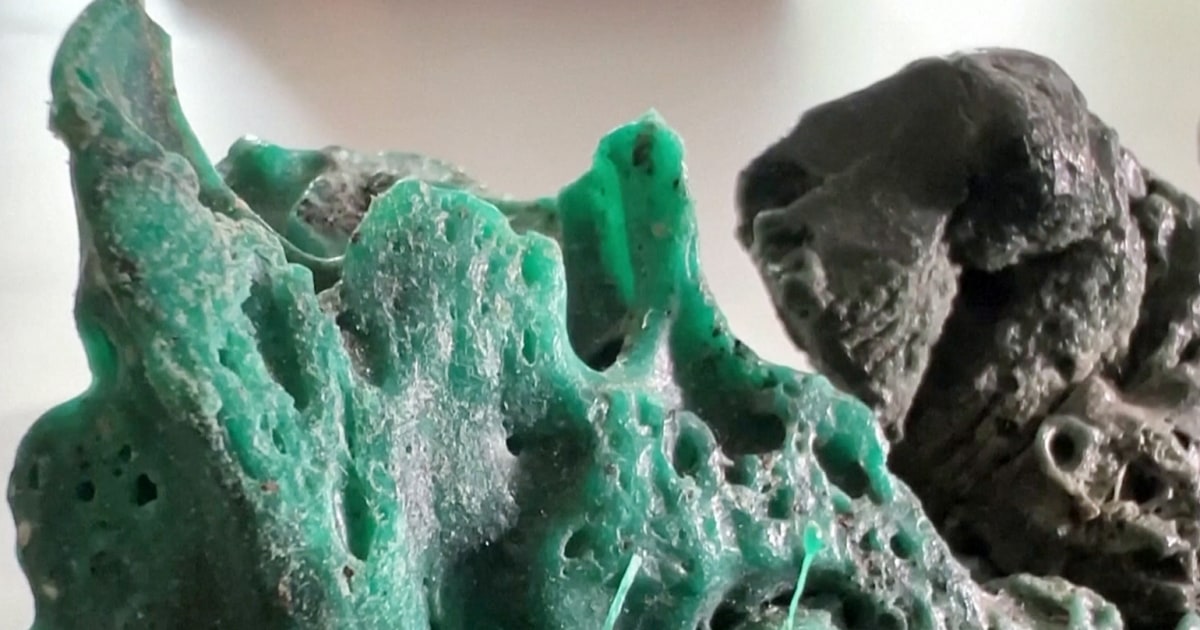Key takeaways:
- Scientists have discovered a shocking new form of pollution on Brazil’s Trindade Island: “plastiglomerates”
- The rocks are made of a mixture of sedimentary granules and other debris held together
- This discovery is a stark reminder of the need to reduce plastic waste and its impact on the environment
Scientists have discovered a shocking new form of pollution on Brazil’s Trindade Island, located 1,140 km (708 miles) from the southeastern state of Espirito Santo. The island, which is a turtle refuge, is now home to rocks made from plastic debris, known as “plastiglomerates”.
Fernanda Avelar Santos, a geologist at the Federal University of Parana, and her team ran chemical tests to find out what kind of plastics are in the rocks. The results of their tests showed that the rocks are made of a mixture of sedimentary granules and other debris held together.
This discovery is alarming, as it is evidence of humans’ growing influence over the earth’s geological cycles. It is also a sign of the increasing amount of plastic pollution in the environment.
The researchers are now working to understand the implications of this discovery. They are also looking into ways to reduce plastic pollution and its impact on the environment.
The findings of this research are a stark reminder of the need to reduce plastic waste and its impact on the environment. It is also a call to action for governments and individuals to take steps to reduce plastic pollution and protect the environment.



Be First to Comment